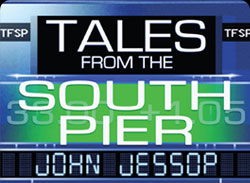Sports lovers everywhere may be enthralled for now by
the various running, jumping and standing still events at the London Games, but
in the real world the most compelling, longest-running and temporarily
forgotten Olympian struggle remains the fight for the euro.
In this event, yet another qualifying heat is about to
take place in Frankfurt, where 23 governors from the European Central Bank line
up to determine the winners and losers in the grueling bailout
competition. Germany goes into the arena as hot
favourite to retain its title as champion of the euro, but a following pack of
Greeks, Spaniards and Italians all noisily nurture hopes of a medal.
Mario Draghi, head of the ECB, the eurozone’s
equivalent of the London Olympic Organising Committee, has taken it upon
himself to fire the starting pistol by asserting that the bailout fund ought to
acquire a banking licence to give it what has been called “unlimited
firepower”. The ECB, he recently stated
boldly, will do whatever it takes to preserve the integrity of the
currency. The spectators in the
bleachers, otherwise known as the financial markets, cheered loudly. But wait, the Germans have launched a
protest.
Bundesbank chief Jens Weidmann warns that the ECB must
“not overstep its own mandate”. German public opinion, he admonishes, would not
tolerate the kind of interventionist role being pushed by others. “If a central bank also has to work against
public opinion, things get difficult.”
Finland’s Prime Minister Jyrki Katoinen echoes the
sentiment: “Finnish people believe in rule-based union”. That should not mean, he avers, the starting
point for what he calls “creative interpretation”.
And so the race begins, each of the contestants
jockeying for position.
My money says the medal ceremony, whenever it is
eventually held, will be accompanied by the familiar strain of Deutschland Uber Alles.
Britain, for the record, is not represented in
this event.
—-


Be First to Comment